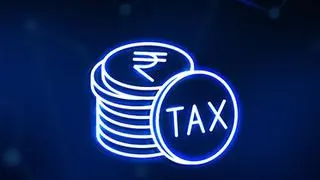I am a retired banker earning pension of ₹30,000. My father-in-law helped me a lot in both kind and cash in our earlier days, which I treat as debt to my wife. In 1990 he bought two plots in my wife’s name (a housewife) and sold one for my daughter’s wedding. In 2005, when our children completed their studies, I started repaying my debt to my wife, by way of gift below ₹5 lakh per year, through investments in shares. I have also been filing tax returns for the past two years. Question 1: Is it correct on my part to file returns separately though I have no proper accounting? Q2: For online investments in shares if we incur ₹1,000 per month (comes to about ₹12,000 per year), can we show these as expenses for my wife?
K Nagarajan Every individual is required to file the Income tax return (ITR) if his / her total income exceeds the basic exemption limit. The threshold is ₹300,000 for individuals in 60 to 80 years; ₹500,000 for senior citizens over 80 years and ₹250,000 for others. In addition to the above, tax return filing is required if the individual fulfils any of the following conditions: Deposited ₹1 crore or more in bank current accounts, incurred aggregate expenditure in excess of ₹2 lakh on foreign travel or consumed electricity in excess of ₹1 lakh or holds a foreign asset outside India either as a beneficial owner or otherwise. Generally, maintenance of books of accounts is mandated for individuals carrying on business or profession and wherein the sales/turnover/gross receipts is more than ₹25,00,000. As long as you do not fulfil the above, you are not required to maintain books of accounts for filing the return.
Certain expenses like brokerage, sales commission to effect the purchase or sale of transactions for earning capital gain income or commission/other charges incurred wholly and exclusively for earning the other income, etc. can be claimed as a deduction. Technically, the gifts your wife receives from you (shares) are not taxable in her hands. Pursuant to the clubbing provision of section 64(1)(iv) of the Act, any gains / income arising from sale of such shares is taxable in your hands and there could be tax filing requirement in India.
There is a deduction in my salary towards both employee and employer contribution for PF. But the contribution by employer alone is shown in my Form No.16. In this regard, I would like you to confirm that whether both the contributions by employer and employee from my salary are exempt under section 80CCD and 80CCD(1) of Income Tax Act?
V. Pandiarajan Employee’s own contribution to PF could be claimed as a deduction under Chapter VI A section 80C of the Act, subject to the overall limit of ₹150,000. Section 80CCD of the Act provides deductions to the employees with respect to contribution to pension schemes as notified by the Central Government viz. National pension Scheme (NPS).
Section 80CCD (1) of the Act provides deduction to the employees own contribution to the NPS subject to limit of 10 per cent of salary during a financial year and overall limit of ₹150,000 under 80C of the Act as discussed above.
Under section 80CCD (1B), employee may claim additional deduction of maximum ₹50,000 for the contribution to pension scheme made during a financial year.
Section 80CCD (2) of the Act provides deduction with respect to employer contribution to pension scheme up to 10 per cent of salary during a financial year and this deduction is over and above section 80C limit of ₹150,000.
In view of the above, your contribution to pension scheme shall be part of the overall deduction limit of ₹150,000 specified under section 80C of the Act. Further, the contribution made by your employer shall form part of the deductions under section 80 CCD (2) of the Act further specified in Form 16.
The writer is Partner, Deloitte India
Send your queries to taxtalk@thehindu.co.in








Comments
Comments have to be in English, and in full sentences. They cannot be abusive or personal. Please abide by our community guidelines for posting your comments.
We have migrated to a new commenting platform. If you are already a registered user of TheHindu Businessline and logged in, you may continue to engage with our articles. If you do not have an account please register and login to post comments. Users can access their older comments by logging into their accounts on Vuukle.